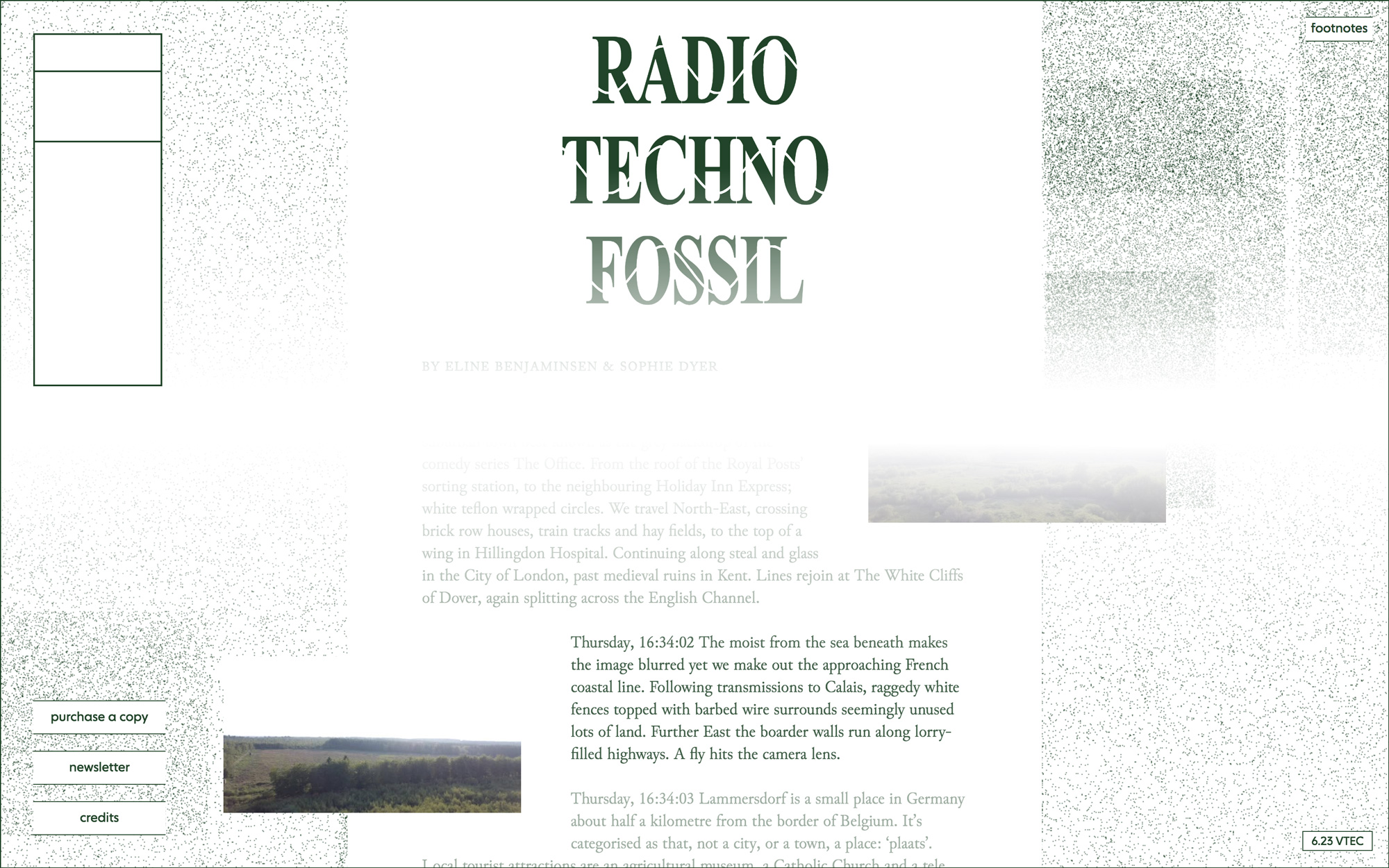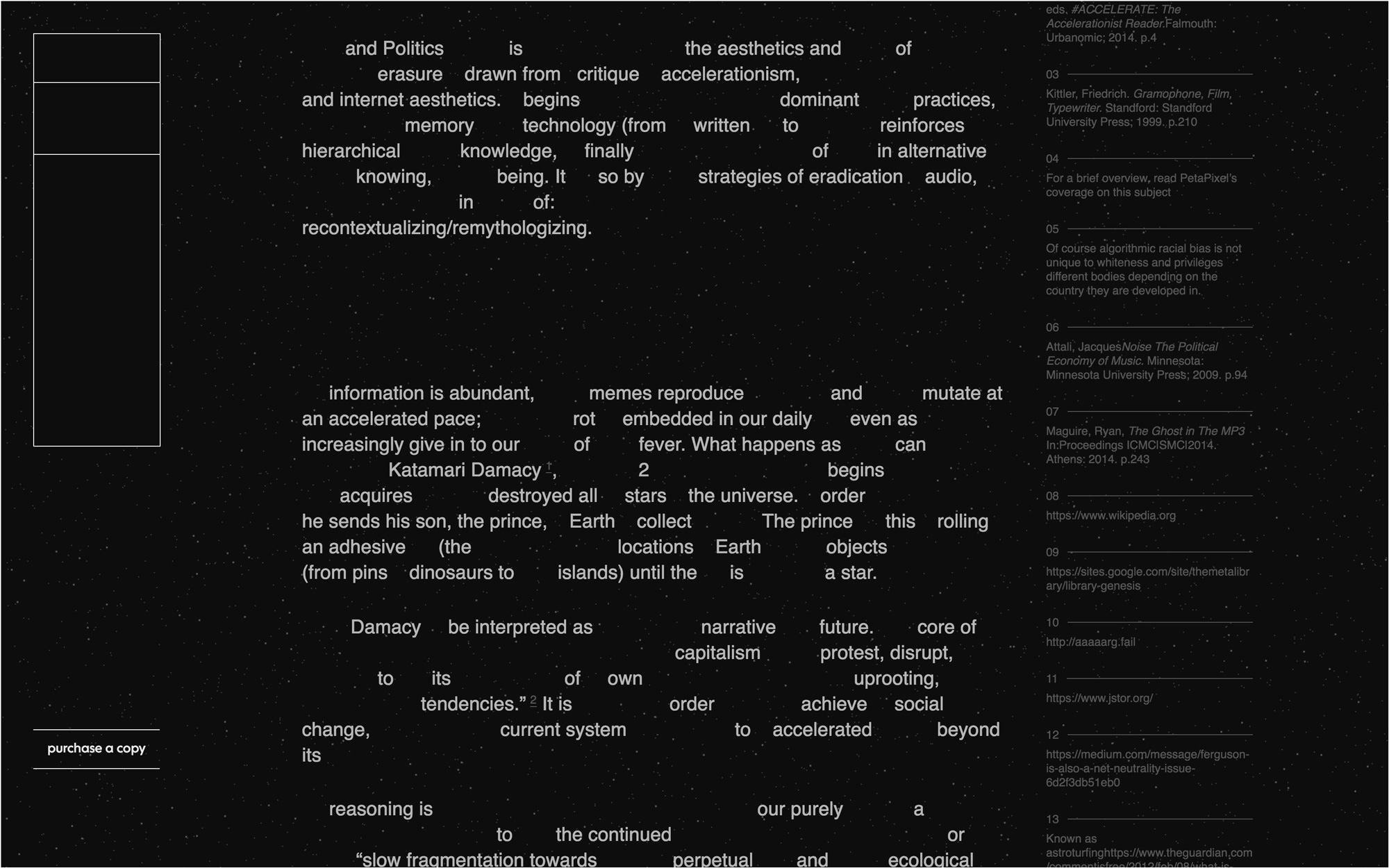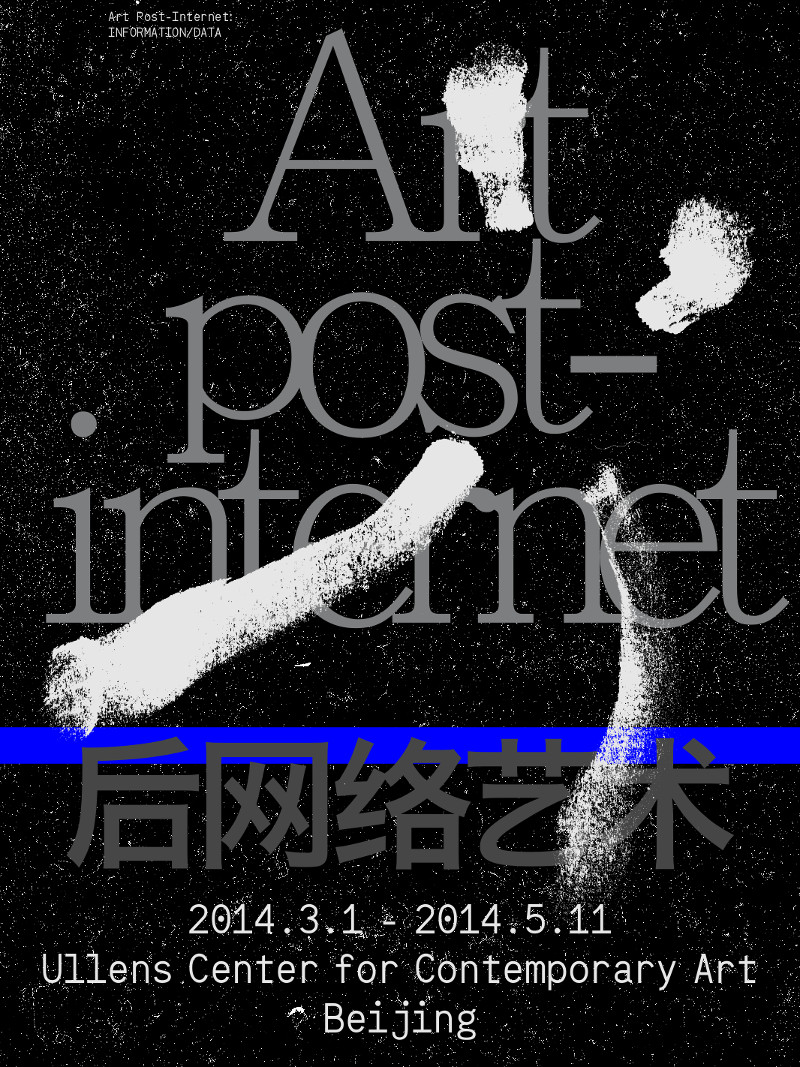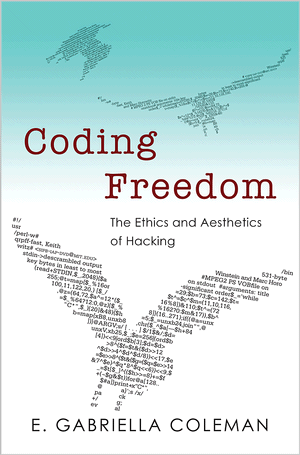oneacre.online (2017–)
Filed under artist publishing | Tags: · aesthetics, artificial intelligence, information, internet, radio, technology


“oneacre.online is an experimental publishing and distribution project that utilises an online platform to seed unprintable text-based works by emerging artists. The project explores the possibilities of hyper-publishing in a series of commissioned publications. Thematically the first four place themselves in the online world of constant updates and refresh buttons that, as theorist Wendy Chun observes, “exist at the bleeding edge of obsolescence. We thus forever try to catch up, updating to remain the same”. The publications use the omnidirectional online terrain and actions that are native to it — such as refreshing, instantly available to edit, easily erasable, highlighting, copy-pasting and non linear navigation — to explore and critically evaluate visions and versions of power systems by tracing the politics of technological infrastructures. Hidden in places as traditional as archives, as often used as smart phone applications, omnipresent and inescapable as the financial market and as quiet and evasive as the transfer of information in narrative structures.
The series showcased in December 2017 Poetics and Politics of Erasure by Yun Ingrid Eel, a multidisciplinary research paper on the aesthetics and politics of erasure. In March 2018, Artificial Intelligence Never Has a Headache by Karina Zavidova, a long-form about the fear of AI spread by the media, and the market of productivity-enhancing tools it has fuelled. In July 2018 Radio, Techno, Fossil by Eline Benjaminsen & Sophie Dyer, the story of a radio-image as it traverses the bounds of the Earth’s surfaces, atmospheres and techno-geographies. And in September 2018, Meaning Seeking Animals by Lisa van Casand, a subjective collection of a wide range of perspectives on the transfer of information.”
Made by Stef Kors, Titus Knegtel, Victoria Douka-Doukopoulou
Published 2017-2018
HTML (limited preview; use the direct links above to access publications)
Comment (0)Art Post-Internet: Information/Data (2014)
Filed under catalogue | Tags: · aesthetics, art, data, internet, internet art, painting, post internet, sculpture, video, video art, web

A PDF catalogue accompanying the exhibition Art Post-Internet, curated by Karen Archey and Robin Peckham for the Ullens Center for Contemporary Art in Beijing during spring 2014. Includes two essays written by the curators, responses to a questionnaire on the nature of the term “post-internet,” and documentation of the works.
Edited by Karen Archey and Robin Peckham
Designed by PWR Studio, Berlin
Published in October 2014
134 pages
PDF (18 MB, updated on 2021-5-19)
Comment (0)E. Gabriella Coleman: Coding Freedom: The Ethics and Aesthetics of Hacking (2012–) [EN, SC]
Filed under book | Tags: · aesthetics, anonymous, anthropology, code, computing, ethics, floss, free software, hacker culture, hacking, intellectual property, internet, internet activism, software, web

“Who are computer hackers? What is free software? And what does the emergence of a community dedicated to the production of free and open source software–and to hacking as a technical, aesthetic, and moral project–reveal about the values of contemporary liberalism? Exploring the rise and political significance of the free and open source software (F/OSS) movement in the United States and Europe, Coding Freedom details the ethics behind hackers’ devotion to F/OSS, the social codes that guide its production, and the political struggles through which hackers question the scope and direction of copyright and patent law. In telling the story of the F/OSS movement, the book unfolds a broader narrative involving computing, the politics of access, and intellectual property.
E. Gabriella Coleman tracks the ways in which hackers collaborate and examines passionate manifestos, hacker humor, free software project governance, and festive hacker conferences. Looking at the ways that hackers sustain their productive freedom, Coleman shows that these activists, driven by a commitment to their work, reformulate key ideals including free speech, transparency, and meritocracy, and refuse restrictive intellectual protections. Coleman demonstrates how hacking, so often marginalized or misunderstood, sheds light on the continuing relevance of liberalism in online collaboration.”
Publisher Princeton University Press, 2012
Creative Commons Attribution-NonCommercial-NoDerivs 3.0 License
ISBN 1400845297, 9781400845293
264 pages
Responses: Jo Bates, Denisa Kera, Brett Lunceford, Jorge Luis Zapico, Alexander Halavais, Stéphane Leman-Langlois, Ethan Zuckerman
Reviews: James Grimmelmann (Jotwell: Cyberlaw, 2012), David Banks (Cyborgology, 2012), Eric Raymond (2013), Cade Metz (Wired, 2013), Mike Doherty (Hashbang, 2013), Bruce Byfield (Linux Mag blog, 2013), Bryan Behrenshausen (OpenSource.com, 2013), Roy S. Gutterman (Journalism & Mass Communication Q, 2014), Tim Jordan (American J Sociology, 2014), Emily T. A. Earl (Techno_ethno, 2014), Anne Elizabeth Yaniga (Techno_ethno, 2014), Sebastian Kubitschko (Culture Machine, 2014).
Coding Freedom (English, updated on 2013-1-18, PDF, EPUB [updated on 2014-9-2])
Kodiranje slobode. Etika i estetika hakovanja (Serbo-Croatian, trans. Ljubica Gotić and Predrag Todić, 2014)

